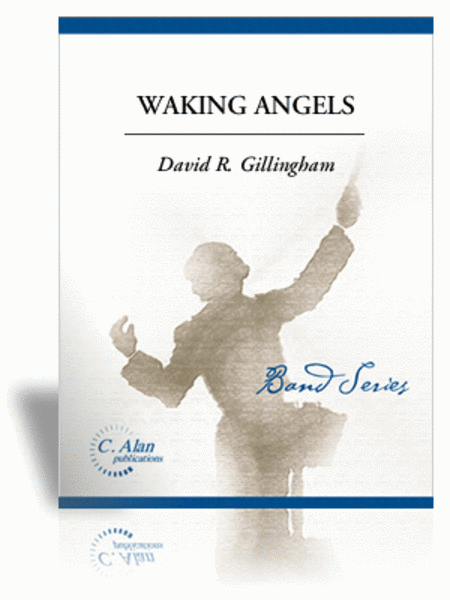Waking Angels
-
Ships in 3 to 4 weeks
Details
Description
SKU: CN.02861
Composed by David Gillingham. Closer. Maestro Band Series. Score only. Duration 11:10. Published by C. Alan Publications (CN.02861).A sensational work for advanced band, "Waking Angels" is everything you've come to expect from David Gillingham. Extensive use of the percussion section adds to the excitement created in the brass and winds. Complex rhythms and textures abound in this fantastic work.
Waking Angels was inspired by the poem, "Mercy," by Olga Broumas which is among a collection of poems on the subject of AIDS by various poets called Poems of Life. Broumas' poem makes reference to the "sea-smoke" rising from the ocean and how it is often referred to as the "breath of souls." The last stanza of the poem alludes to these lost souls that Broumas has been grieving for: they leave, like waking angels rising on a hint of wind, visible or unseen, a print, a wrinkle of the water. Whether we choose to acknowledge it or not, AIDS has profoundly affected the world in which we live. Countless numbers of people have lost their lives to this merciless disease and a cure is not yet within reach. Through the imagery of the music, Waking Angels emanates the mysteriousness, the pain and the ruthlessness of the disease. But, it also provides us with the warmth and comfort of hope and the peace of eternity. One may recognize fragments of the old hymn, "Softly and Tenderly, Jesus is Calling," by Will Thompson which serves to unify the work. This, to me, is nostalgic, having grown up among the ambience of the old Gospel Hymns. I have found the melody and text comforting over the years. The hymn motive goes through a degenerative process in the work paralleling the nature of the disease. My purpose in using the hymn tune is not necessarily religious. It simply provides a source of reflection - to personally draw the listener into the music and toward a closer understanding of the pain and suffering of mankind. - David R. Gillingham.

 Share
Share